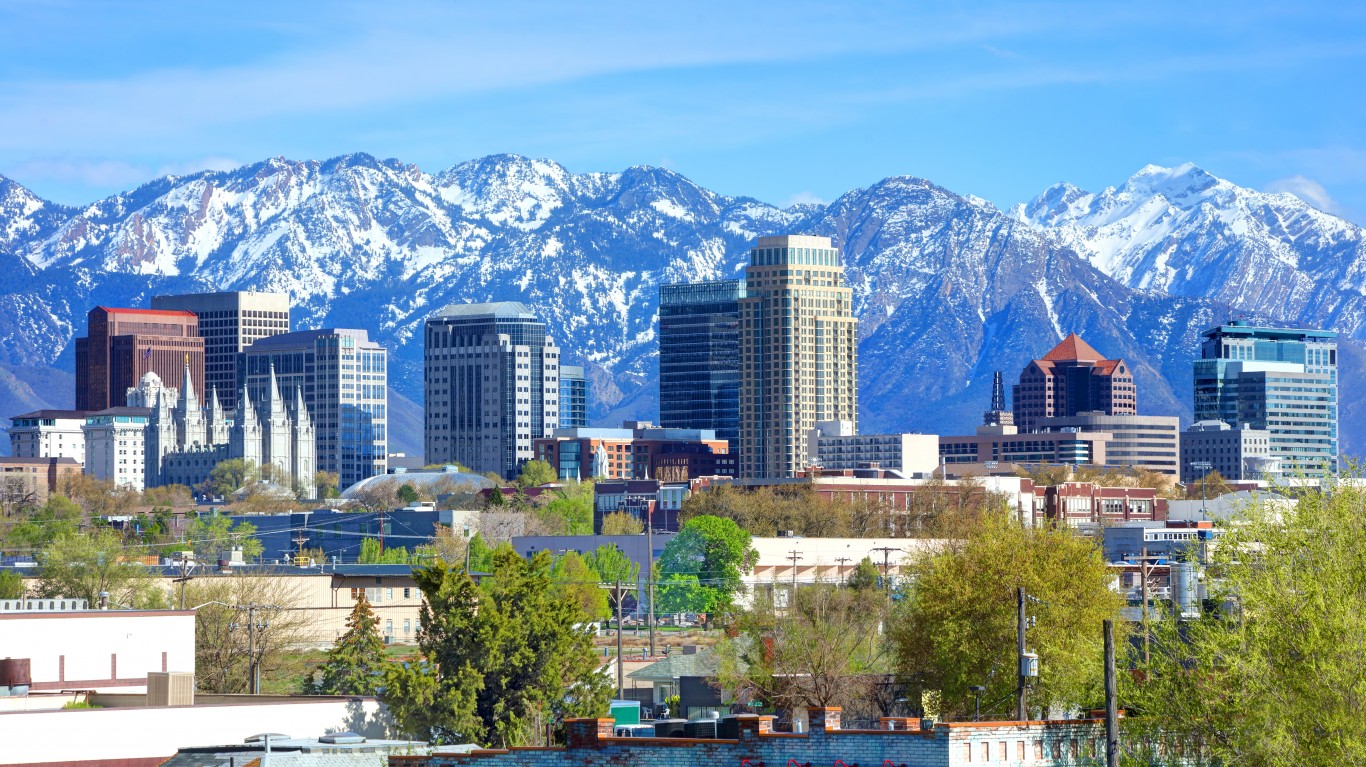Health and Healthcare
This Is the State Struggling to Fully Vaccinate Residents

Published:

It has been 14 months since the first case of COVID-19 was diagnosed in Washington State. The U.S. count of confirmed cases has just risen above 30 million. It increased by 43,422 to 30,054,603 in the past day. Deaths have reached 548,171, after rising by 718 in the past day. Unfortunately, these daily numbers, which had dropped over the past three months, have started to rise at an alarming rate again.
Public health officials and epidemiologists worry America is about to hit the fourth wave in the spread of the disease. The vaccination rate in the United States is among the defenses against this. Some states are performing much better than others.
Vaccination rates have risen quickly in the past three weeks. The Biden administration says it will have enough vaccine for all Americans by May 1, and it is running ahead of that timetable. At this point, 25% of Americans have received at least one dose and 13% have been fully vaccinated. Nationwide, 156,734,555 doses have been delivered and 121,441,497 shots have been given.
There are two challenges to further slowing the spread of the disease. The first is disease variants, some of which may spread faster than the version that infected most people from last January until recently. The Centers for Disease Control and Prevention (CDC) tracks three of these for the public: the B.1.1.7, the B.1.351 and the P.1 variants. These variants have been found in all 50 states, and epidemiologists believe that there are many more variants than these three. Public health offices believe that as many as 30% of new cases in the United States are from the B.1.1.7 variant.
The other challenge is the opening up of parts of the United States. Texas, the second-largest state by population, is a case in point. The governor has dropped the state’s mask mandate, allowed a renewal of social gatherings and opened businesses. Public health officials worry this may cause a fourth wave of the disease.
In fact, daily confirmed case rates and daily fatal cases have started to rise again in some states and counties. Recently, officials in Miami shut down college student parties. People on Spring Break were running superspreader events.
Because of reopening, and because most Americans have still not been vaccinated, numbers of cases in many states have started to rise again. The state that has struggled the most in fully vaccinating its population is Utah. Fully vaccinated means two shots in the case of the Moderna or Pfizer vaccines and one shot in the case of the Johnson & Johnson vaccine.
Utah’s fully vaccinated figure is 9.6%. The percentage of people who have received at least one dose is 22%, also below the national average. In Utah, 1,321,750 doses have been delivered and 1,137,351 shots have been administered, so it is ahead of the national average on this ratio.
Why has Utah been slow? Public health officials and politicians have pointed fingers at one another. Utah does have the youngest population in the United States, based on median age. In a country where vaccinating the oldest parts of the population is a priority, this also could be a disadvantage.
Are You Ahead, or Behind on Retirement? (sponsor)
If you’re one of the over 4 Million Americans set to retire this year, you may want to pay attention. Many people have worked their whole lives preparing to retire without ever knowing the answer to the most important question: are you ahead, or behind on your retirement goals?
Don’t make the same mistake. It’s an easy question to answer. A quick conversation with a financial advisor can help you unpack your savings, spending, and goals for your money. With SmartAsset’s free tool, you can connect with vetted financial advisors in minutes.
Why wait? Click here to get started today!
Thank you for reading! Have some feedback for us?
Contact the 24/7 Wall St. editorial team.